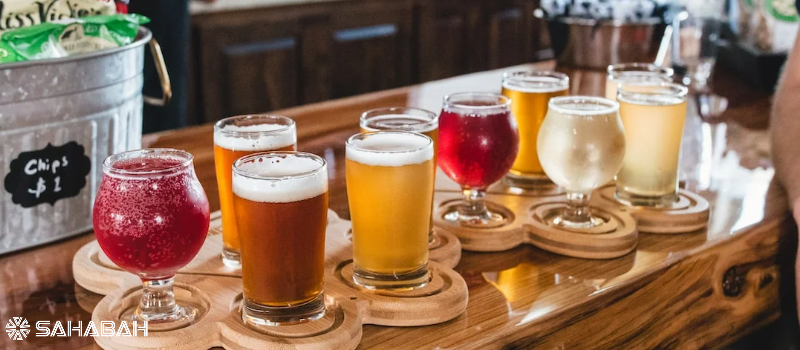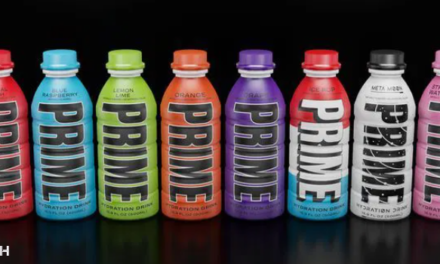Is Cider Halal? A Guide for Muslims
Cider has exploded in popularity in recent years as a refreshing apple-based beverage. However, many Muslims who enjoy cider wonder whether it aligns with Islamic dietary laws. Specifically, is cider considered halal or haram (forbidden) to drink?
This comprehensive guide examines cider ingredients, production methods, and alcohol content to provide a definitive answer on cider’s halal status for the Muslim community.
What Exactly is Cider?
Cider refers to a fermented alcoholic beverage made from fruit juice, usually apple juice, but sometimes also pears, berries, or other fruits.
The basic ingredients are:
- Fruit juice: The foundation, typically apple juice but also pears, berries, etc.
- Yeast: Converts natural sugars in juice to alcohol. Cider strains target ~5% ABV.
- Sugar: Added to boost final cider sweetness and alcohol levels.
- Water: Also used to modulate cider body and strength.
- Other flavorings: Spices, fruits, herbs added for taste in some ciders.
Sometimes additional preservatives, sulfites, colorings, or clarifying agents are included too.
The fruit juice is fermented when yeast is introduced and begins metabolizing natural sugars into ethanol alcohol. The amount of sugar determines final alcoholic strength.
Cider alcohol content typically ranges from 1.2-12% ABV, though is generally lower than wine or beer. Sugar, water, and yeast all impact total ABV:
| Type | Alcohol Content | Factors Affecting Strength |
|---|---|---|
| Apple Cider | 3-8% ABV | More sugar = higher ABV |
| Pear Cider | 4-8.5% ABV | More water = lower ABV |
| Other Fruit Ciders | 1.2-13% ABV | Cider yeast strain targets ~5% |
So in summary, cider is an alcoholic fermented fruit juice beverage with apple cider being the most popular type. But does using a natural fruit juice base and fermentation process automatically make it halal? Islamic scholars examine this next…
Cider and Islamic Guidance
The holy Quran clearly prohibits consuming intoxicating amounts of alcohol:
“O you who have believed, indeed, intoxicants, gambling, [sacrificing on] stone alters [to other than Allah], and divining arrows are but defilement from the work of Satan, so avoid it that you may be successful.” (5:90)
However, there is disagreement regarding alcoholic drinks derived from pure fruit juices:
- Distilled spirits like rum, gin, vodka, etc are always haram – Scholars agree these strong intoxicants violate Quranic principles.
- Unfermented fruit juices are halal – Apple, pear, grape and other juices in their natural state are unanimously permitted.
- But fermented fruit-based alcoholic drinks like wine and cider fall into a grey area needing deeper evaluation of:
- Production methods
- Alcohol content
- Intoxication risk
- Presence of any forbidden ingredients
Each of these key factors must be analyzed to determine if various ciders are permissible for Muslims.
Cider Production Methods and Ingredients
According to Islamic guidance, both cider ingredients and manufacturing processes influence halal status.
More natural ciders made purely from fruit juice and yeast through halal techniques are more likely to be considered halal. For example, apple cider produced by simply fermenting pressed apple juice concentrate with cider yeast could potentially be halal if all other criteria are also met.
However, commercial hard cider today often contains questionable ingredients and production shortcuts:
Potentially Problematic Cider Ingredients:
- Gelatin from pork products as fining agent to clarify cider. Certainly haram.
- Sulfites to prolong shelf life – controversial if this makes cider “unnaturally” preserved.
- Artificial colors, flavors, or preservatives also cause concerns over processed additives.
- Glycerine, sorbitol, xanthan gum – stabilizers and sweeteners that may come from plant or animal sources.
- Added cane sugar, corn syrup, honey, malt extract from questionable Islamic sources.
Potentially Problematic Production Methods:
- Chemically arresting yeast fermentation once desired ABV achieved rather than allowing to finish naturally.
- Using genetically modified yeast strains to boost yields – may constitute controversial “playing God in creation”.
- Pasteurization above certain temperatures also debated by Islamic scholars regarding effect on naturalness.
So when determining a specific cider’s permissibility, Muslims should investigate both its ingredients and the details of its production process for any apparent violations of halal methodology guidelines, outside of alcohol content itself which we examine next.
Hard Cider Alcohol Content and Intoxication Risk
A key factor determining cider’s halal compliance is its alcohol percentage (ABV), as this dictates the level of potential intoxication caused by drinking it.
According to Islamic jurisprudence, alcoholic beverages fall into 3 general categories:
- Non-intoxicating drinks containing minimal to no alcohol – unanimously halal
- Intoxicating alcohols with high amounts of alcohol – haram and forbidden by nearly all Islamic schools.
- A “gray area” category in the middle containing some alcohol where permissibility is debated.
However, individuals metabolize alcohol differently based on factors like weight, gender, genetics, etc. One person may show signs of impairment at a lower cider ABV than someone else drinking the same amount.
Approximate alcohol content thresholds for these categories are:
| Category | Alcohol Content | Example Cider Types | Likely Halal Status |
|---|---|---|---|
| Non-Intoxicating | 0-0.5% ABV | Some special “Islamic compliant” ciders | Halal |
| Gray Area | 0.5-2% ABV | Potentially sparkling or “sweet” ciders | Differences in opinion |
| Intoxicating | 2%+ ABV | Most standard “dry” and craft ciders | Haram |
So ciders under 0.5% alcohol are likely halal, while most common hard ciders containing 4% ABV or more certainly carry intoxication risk for the majority of people, making them haram forbidden substances.
However, a few conservative Islamic experts argue that even tiny traces of ethanol alcohol not permissible. So for some schools of thought, any alcoholic cider is haram, regardless of the percentage. This again falls into scholarly discretion.
Now that we have covered the various criteria used to determine cider’s halal status, next we provide guidance on different types of cider and their likelihood of aligning with Quranic principles.
Types of Cider: Confirmed Halal, Likely Halal, and Certainly Haram
Based on the preceding analysis, below are different categories and examples of ciders along with their probable halal certification status:
Officially Confirmed Halal Ciders
A handful of specialty cider producers have obtained official halal blessing from Islamic councils and halal monitoring agencies:
- Broughton Cider Co. (UK) – A family-run farm, their Kent-based Sorts and Classic ciders are halal certified.
- Celtic Marches (UK) – Their entire line of traditional English ciders have halal status approval.
These companies allow site inspections and submit to periodic audits to verify natural ingredients and production methods comply with Quranic principles, outside of 0.5% ethanol alcohol itself which some scholars permit.
Several others market their ciders as “halal-friendly”, though do not have formal certification:
- Celtic Soul (UK) – Self-described “Muslim friendly” ciders from pear and apple juice around 0.5% ABV.
- Erik’s Brewery (Sweden) – Makes an “Erik’s Halal Apple Cider” specifically targeting Islamic markets.
Without third-party verification, individual personal interpretation of their halal compliance still required.
Likely Haram: Popular Mainstream Hard Cider Brands
On the other end of the spectrum, well-known commercial cider mass producers like Strongbow, Magner’s, Woodchuck, Angry Orchard, Stella Artois Cidre, JK Scrumpy, Wyder’s, etc. use lower quality ingredients, flavorings, and shortcuts in their manufacturing process which likely disqualify them as halal options:
- Higher alcohol percentages from 5-7% ABV with intoxication potential.
- Concentrate-reconstituted apple juice instead of fresh pressed cider apples.
- Corn syrup and cane sugar additions from questionable sources.
- Chemical yeast inhibitors for fast high-volume production.
These attributes make popular ciders almost certainly haram and forbidden to drink under Islamic law.
In summary, the most conservative position would prohibit all alcoholic ciders regardless of alcohol percentage based on the Quran’s clear warnings against intoxicants forwarded by certain hadiths.
However, other analyses focusing on level of potential impairment may condone specialty “Islamic friendly” ciders specifically produced with Muslim religious needs in mind using natural ingredients and methods. These “halal cider” offerings continue to expand internationally as the market grows.
Ultimately each Muslim must carefully research and weigh factors like alcohol content, ingredients, manufacturing methods, and intoxication risk against Quranic scripture and scholarly guidance to determine their personal threshold for cider’s halal status in accordance with their practice of Islamic principles.
Consuming Cider According to Islamic Values
Based on this comprehensive halal analysis, below is guidance for Muslims around drinking cider in alignment with worshiping Allah :
- Exercise great caution and avoid most mainstream commercial hard ciders which likely use an excess of intoxicating alcohol or other questionable ingredients and shortcuts that would classify them as haram.
- Seek out verified halal certified ciders compliant with Islamic production standards when possible. Though still containing traces of alcohol, these represent guidance from halal governing bodies.
- For uncertified ciders, carefully inspect ingredients lists, manufacturing details, and alcohol percentages – give strong preference to specialty “Islamic friendly ciders” specifically crafted recognizing Muslim religious needs around low or no alcohol (~0.5% ABV threshold) and made from pure all natural ingredients.
- Take personal responsibility as Muslims for thoroughly researching cider ingredients, fermentation methods, and alcohol levels to judge for yourself based on your practice – do not simply assume guidance from packaging and marketing materials.
- When in doubt or unable to verify details on a specific cider, abstaining from consuming cider altogether aligns best Quranic principles forbidding intoxicants to honor Allah and our devotion to the righteous path as believers. Though general Islamic guidance is clear, cider’s precise halal status involves many subtle factors requiring personal analysis by each individual for their situation. But when unsure, avoiding cider stays true to our duties as Muslims.
Now you have an extensive guide exploring the question “is cider halal”? armed with knowledge and perspective to thoughtfully apply Islamic values around alcohol to honor Allah through our choices and deeds.




